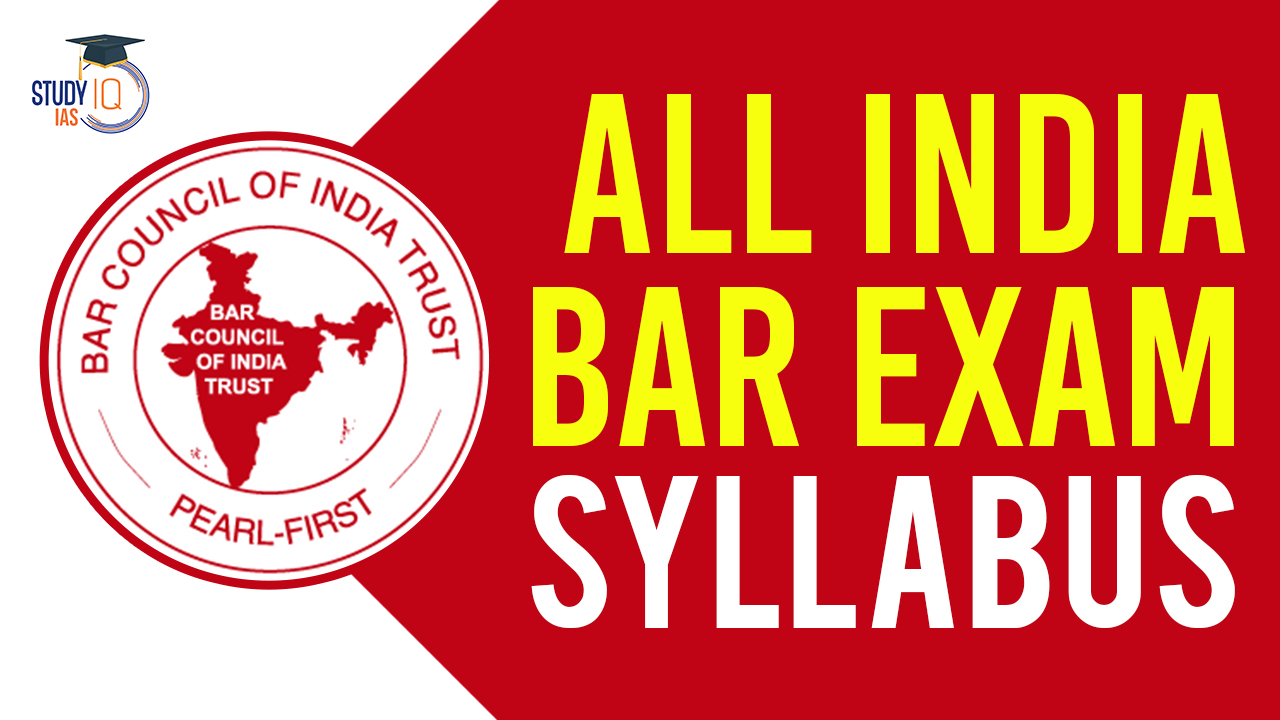Table of Contents
The All India Bar Examination (AIBE) is a national exam for law graduates who want to practice law in India. You should check the detailed AIBE XIX syllabus analysis. You can download the AIBE Syllabus in the PDF form below. If you are taking the AIBE 19 Examination 2024, it is important to look at the AIBE 19 2024 syllabus carefully to prepare well.
AIBE 19 Syllabus 2024
The AIBE 19 Exam 2024 has 100 multiple-choice questions. The syllabus includes 19 topics like , including Constitutional Law, Administrative Law, IPC, CrPC, Jurisprudence, IPR Law, Family Law, and more. Make sure to download the syllabus from the official website: allindiabarexamination.com or from the link provided by us. For information including how many questions will be asked and which topics are most and least important, check the full article.
AIBE 19 New Syllabus 2024
The AIBE syllabus has undergone some significant changes compared to the previous year. However, the AIBE 19 (XIX) Syllabus remains similar to the previous session, with a few minor revisions in the weightage and topics.
- The AIBE Exam 2024 Syllabus includes 19 law topics/subjects, and candidates can expect
- 10 questions from Constitutional Law,
- 8 questions from Indian Penal Code (IPC),
- 10 questions from the Criminal Procedure Code (CrPC), legal maxims, and so on.
It is important to note that candidates are not allowed to carry textbooks, notes, or any written materials inside the exam hall. The AIBE exam is not an open-book exam. Only bare acts are permitted, provided they do not have any short notes or comments.
AIBE 19 Exam Pattern 2024
The examination consists of 100 questions, each carrying one mark. Presently, there is no provision for negative marking, Candidates have the availability to attempt the exam in 11 languages, It is available in English, Assamese, Bengali, Gujarati, Hindi, Kannada, Kashmiri, Malayalam, Manipuri, Nepali, Odia, Tamil, and Urdu. The duration of the exam is set at 3 hours and 30 minutes. Check out the table below
| Particulars | Details |
|---|---|
| Mode of Examination | Offline |
| Type of Examination | Certification based |
| Duration of Examination | 3 hours 30 minutes |
| Type of Questions | Objective-type questions |
| Total Number of Questions | 100 |
| Total Marks | 100 |
| Negative Marking | No |
AIBE 19 Topics Weightage
Below, we provided all important sections with their weightage for the AIBE 19 Exam in the tabular form –
| Particulars | Approx. marks |
| Criminal Procedure Code | 10 Marks |
| Civil Procedure Code | 10 Marks |
| Indian Penal Code | 8 Marks |
| Alternative Dispute Redressal including Arbitration Act | 4 Marks |
| Public Interest Litigation | 4 Marks |
| Administrative Law | 3 Marks |
| Personal Ethics & Cases of Professional Misconduct under BCI Rules | 4 marks |
| Company Law | 2 marks |
| Environmental Law | 2 marks |
| Cyber Law | 2 marks |
| Labour and Industrial Laws | 4 marks |
| Taxation Laws | 4 marks |
| Land of Acquisition Act | 2 marks |
| Intellectual Property Laws | 2 marks |
| Constitutional Law | 10 marks |
| Law of Contract, Specific Relief, Property Laws, Negotiable Instruments Act | 8 marks |
| Evidence Act | 8 marks |
| Family Law | 8 marks |
| Law of Tort including Motor Vehicles Act and Consumer Protection Law | 5 marks |
| Total Marks | 100 |
AIBE 19 Preparation Tips
- Thorough Understanding of the Syllabus: Candidates must familiarize themselves with the AIBE 2024 syllabus, ensuring comprehensive coverage of all core topics.
- Strategic Time Management: Allocate sufficient time to each topic based on its weightage in the exam, ensuring balanced preparation across all subjects.
- Practice with Previous Years’ Question Papers: Solving previous years’ question papers helps candidates gauge the exam pattern, identify key areas of focus, and improve time management skills.
- Language Proficiency: Candidates must choose the language of the exam wisely, opting for the language they are most proficient in to avoid comprehension challenges.
- Revision and Mock Tests: Regular revision of key concepts and engaging in mock tests helps reinforce learning, identify weak areas, and build confidence ahead of the exam.
Also, Check AIBE 19 Eligibility Criteria
| Related Post | |
| AIBE 19 Answer Key 2024 | AIBE 19 Question Paper 2024 |


 Daily Quiz 18 April 2025
Daily Quiz 18 April 2025
 OSSC CGL Syllabus 2025 and Exam Pattern ...
OSSC CGL Syllabus 2025 and Exam Pattern ...
 AI and its Regulation in India, Limitati...
AI and its Regulation in India, Limitati...





















